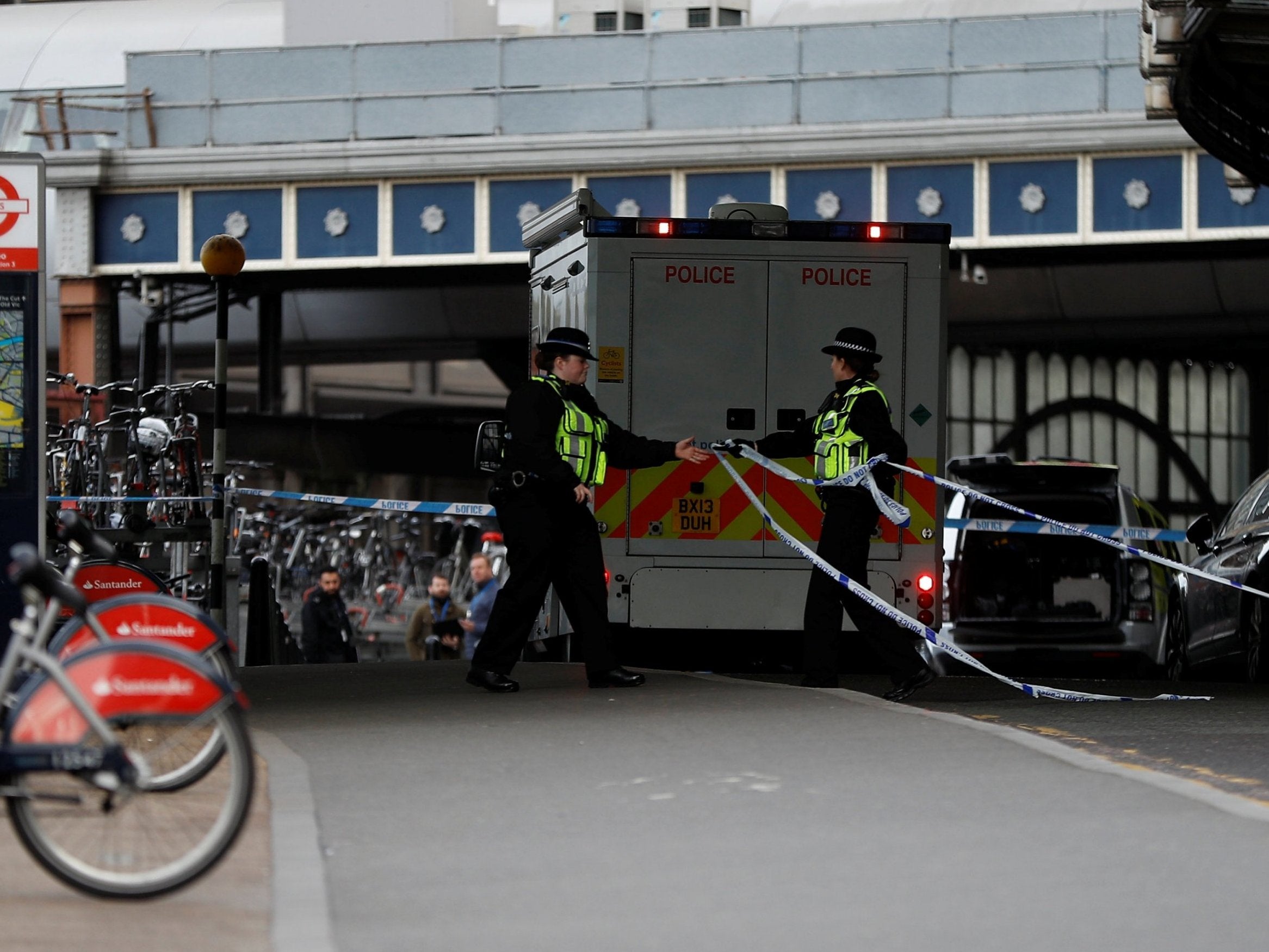‘IRA’ claims responsibility for London and Glasgow letter bombs, say Met police
Statement says five bombs sent, but only four have been recovered
A group calling itself the IRA has claimed responsibility for package bombs sent to targets in London and Glasgow.
A statement was sent to a media outlet in Northern Ireland using a “recognised codeword” on Monday, police said.
It said five bombs had been sent out, but only four have been discovered, at Heathrow, London City Airport, Waterloo railway station and the University of Glasgow.
“The claim was allegedly made on behalf of the IRA,” a spokesperson for Scotland Yard added.
“The investigations into these devices continue and relevant enquiries are being made in relation to the claim that has been made.
“Given the packages received last week bore similarities to devices sent in the past which were linked to dissident groups associated with Northern Ireland-related terrorism, officers were already looking at this as a line of enquiry. However, we continue to keep an open mind and enquiries continue.”
The Irish News said the statement claimed that three package bombs were sent to “commercial targets” while the remaining two – including the Glasgow University package – were directed to British army recruitment officers.
The location of the fifth device is unknown.
Images of the parcel bombs suggested they had been sent from the Republic of Ireland, with false sender’s addresses in Dublin written on the outside.
The identical packages were addressed by hand, with stamps from a limited 2018 Valentine’s Day range produced by Ireland’s An Post service, featuring the words “Love Eire”.
The IRA fought a paramilitary campaign against British rule in Northern Ireland and has launched deadly bombing campaigns on the British mainland that culminated during the Troubles.
It previously targeted British army recruitment centres in February 2014, when devices were sent to seven offices across the southeast of England.
The most recent incarnation of the republican terrorist group, the “New IRA”, was also suspected of being behind a car bombing that struck Derry in January.

Police Service of Northern Ireland’s Assistant Chief Constable Mark Hamilton described the faction as “small, largely unrepresentative and determined to drag people back to somewhere they don’t want to be”.
The Metropolitan Police said extensive advice has been issued to armed forces personnel, businesses and the transport sector to be vigilant for potential suspicious devices.
The discovery of four devices last week sparked a wave of evacuations and security alerts, but only one device partially detonated and no one was seriously injured.
Police said the packages were all A4-sized white postal bags and contained “small improvised explosive devices” that were capable of igniting an initially small fire when opened.
The first device was reported at the Compass Centre, an office building in the grounds of Heathrow airport, shortly before 10am on 5 March.
The package was opened by staff at the building, causing the device to initiate and burst into flames, but no one was injured.
The second device was reported at 11.40am, when British Transport Police were called to investigate a suspicious package in the post room at Waterloo railway station.
The third device was reported shortly after midday at Civil Aviation House, an office building next to London City airport in east London.
On Wednesday, the fourth package was received at the University of Glasgow and destroyed in a controlled explosion.
Detectives from Scotland Yard’s Counter Terrorism Command are leading the investigation into the three packages received in London, whilst Police Scotland is investigating the package received at the University of Glasgow.
There have been no arrests.
Bookmark popover
Removed from bookmarks